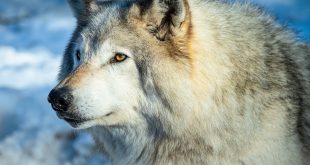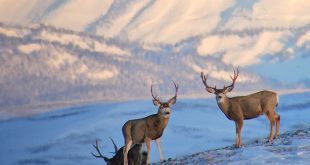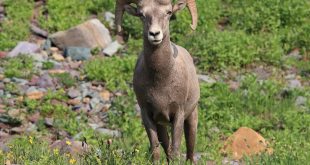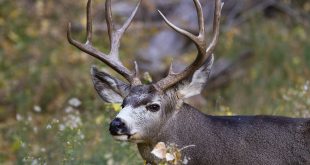
In Wyoming, we don’t just appreciate the animals, we appreciate the opportunity to chase them. That opportunity is the bedrock of our Western hunting culture, and when proposals threaten to tip the scales too far in one direction, people tend to speak up. That’s exactly what happened with the recent proposed changes to Wyoming’s Chapter 44 regulation governing landowner tags.
Wyoming Game and Fish backed off its proposed overhaul after an outpouring of public comments—nearly 400 of them, with a strong 70% opposed to the changes. Maybe the state’s wildlife agency was not expecting so many landowners to mobilize against the proposal, but they definitely seem to have gotten an ear full.
What Was Proposed?
To recap, the department floated a few big changes. First was bumping minimum acreage from 160 to 640 contiguous acres (or 160 cultivated). Second was raising animal use days from 2,000 to 3,000. Third was requiring landowners to hold 20% individual ownership in an LLC, trust, or partnership to qualify
All of those changes have been scrapped—at least for now.
Why the Blowback?
Let’s be honest—when you propose to take away guaranteed licenses from people who’ve been getting them for decades, you better have your flak jacket on. Many of these landowners’ licenses have been handed down from generation to generation like a cherished family heirloom.
Any time you tighten eligibility for something as valuable as a landowner license, those proposing the changes are likely going to hear about it.
But that raises a deeper question: should this policy only be guided by the loudest opposition? Just because folks don’t want to lose a privilege doesn’t mean it’s in the best interest of wildlife, fairness, or the long-term health of our hunting culture to maintain it.
Public hunting opportunity isn’t a hand-me-down either. In the wake of the tsunami of public land hunters opposing the recent federal land selloff efforts in Washington, it’s clear that having good opportunity to hunt for the general public is something we all are down to fight for. So yeah, outcry was expected—but hopefully this sparks a long-overdue conversation for Wyoming.
Many of us have watched as certain hunts become statistically inaccessible—not because there aren’t elk, pronghorn, or deer—but because the combination of high public demand and landowner licenses puts more of the opportunity out of reach in the public draw.
Everyday Public Hunters Currently Take the Hit in the Quota
Here’s the rub for everyday Wyomingites and nonresident hunters alike: landowner tags come at the expense of the general hunting pool by removing from tags allocated in regulation each year. Wyoming does not separate their landowner draws in a separate pool. That means some units see significant numbers of tags ineligible for drawing by the general public. Most of the time, it’s in the most sought after hunts like area 124 where 30% of the only-bull licenses available goes to resident landowners, and residents tussle over 5.3% drawing odds. Nonresident landowners picked up type one licenses at 10 preference points, while the tag has 9% drawing odds in the nonresident regular draw for those with maximum preference points.
Surprisingly, having more than 20% of landowner tags pulled from the drawing pool like this is more common in high demand hunts – not necessarily high private land hunt areas. And it’s not just elk. Resident landowners in BLM dominated hunt area 90 for mule deer received 37% of the resident tags for the 2025 season, while non-landowners had 3.7% drawing odds. On the antelope side of things, the popular public land Red Desert pronghorn hunts in areas 60 and 62, both have more than 25% of the resident licenses going to resident landowners.
Commission Planning to Dive Deep to Address the Problems
Next week’s Commission meeting in Casper has 7 hours of their agenda dedicated to this sticky topic. They will have to wrestle with the abuses of the system, inequities for the public draw people, and also ensure Wyoming’s landowners are respected and acknowledged for their contributions
Some great ideas surfaced in public comments to address the problem that Game and Fish didn’t dismiss entirely ahead of next week’s meeting are:
- Cap the percentage of tags that can go to landowners in a hunt area
- Tier the number of landowner tags by property size
- Require landowner tagholders to hunt only their own land or leases
Those are the kind of nuanced, area-specific solutions that could help preserve the integrity of public opportunity while still respecting landowner contributions to wildlife, and still encourage wild, open spaces to stay undeveloped and un-subdivided. Some may end up as recommendations for legislative action, while others could be adjusted in Regulation. It just depends on where the line of authority falls for the Commission to make these kinds of changes.
Moving Forward: Stay Engaged
Every Wyoming hunter who cares about the future of our seasons, the strength of our wildlife herds, and the fairness of our license allocation process needs to stay engaged. Watch the meeting next week. Submit comments live. Ask questions. And above all, don’t let apathy make the decisions for you.
If we want to keep Wyoming a place where hunting opportunity still feels like a shared value for everyone who loves pursuing critters in the Cowboy State, it’s going to take tough conversations and good listening skills to find a compromise that respects landowners, and the wildlife that is held in the entirety of the public trust.
 Eastmans' Official Blog | Mule Deer, Antelope, Elk Hunting and Bowhunting Magazine | Eastmans' Hunting Journals
Eastmans' Official Blog | Mule Deer, Antelope, Elk Hunting and Bowhunting Magazine | Eastmans' Hunting Journals





One comment
Pingback: Backlash Builds Over Proposed Changes to Wyoming Landowner Hunting Tags - Antlers Arch